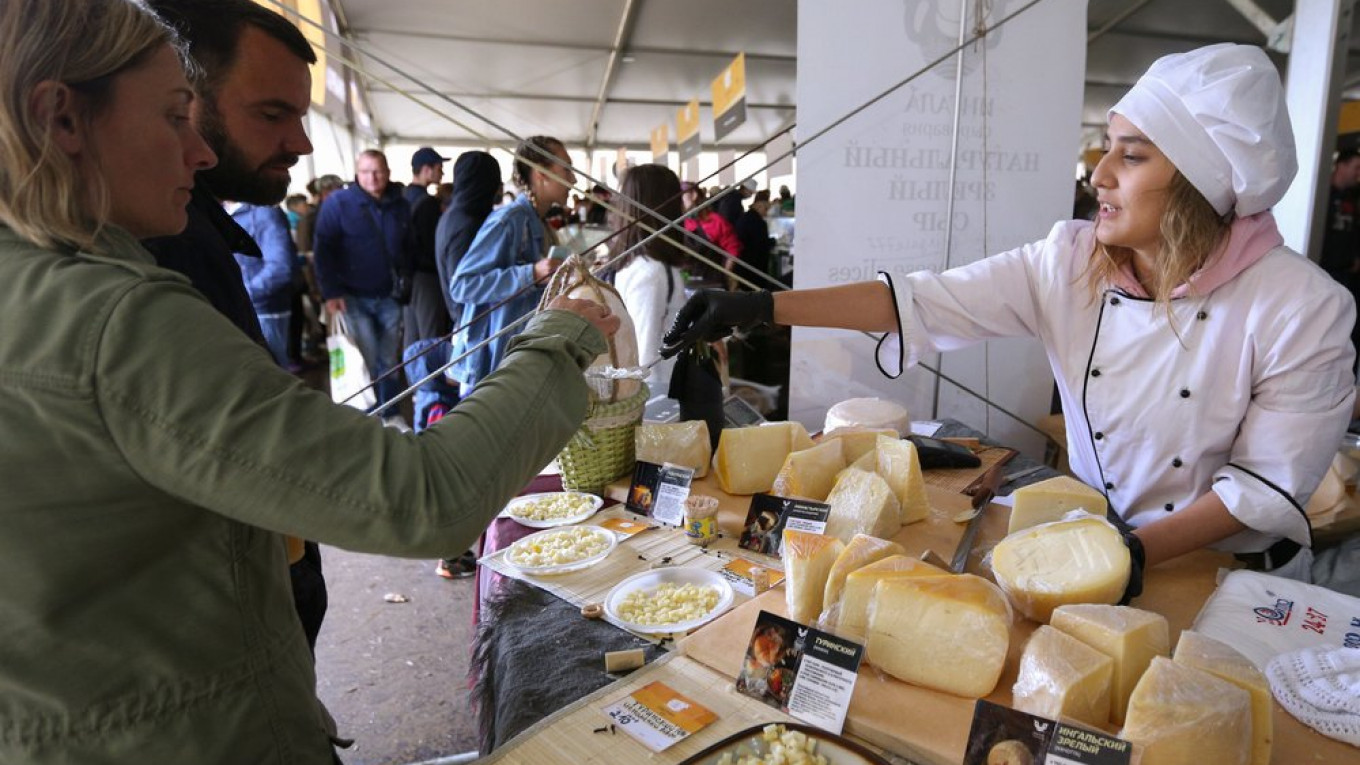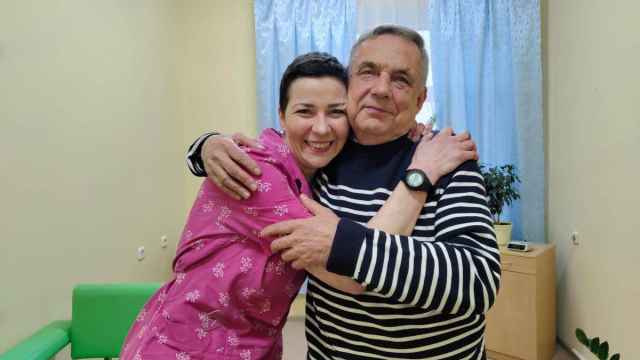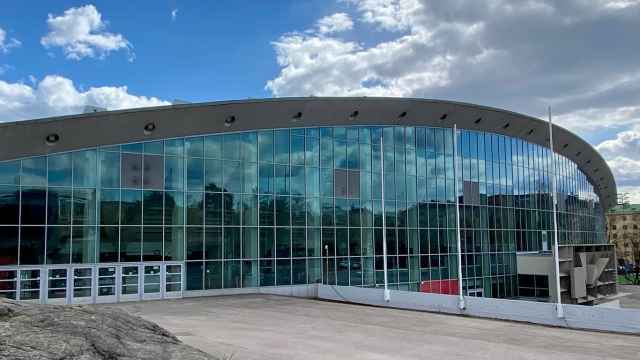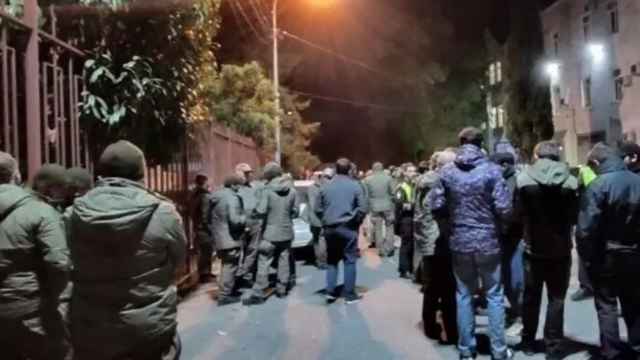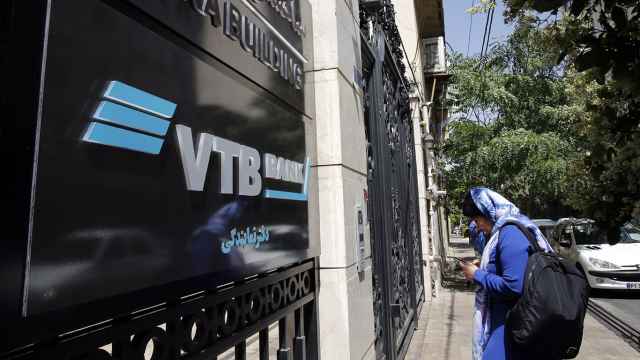When Russian President Vladimir Putin slapped a tit-for-tat embargo on Western dairy products five years ago, cheese lovers lamented the replacement of parmesan camembert and cheddar on store shelves with bland, Russian-made substitutes filled with palm oil and other cheap additives.
But for one man, the embargo was a dream come true.
“I’m very grateful to Vladimir Putin for countersanctions,” Oleg Sirota, owner of the Russian Parmesan cheese factory, pro-Putin patriot and supporter of the separatists in eastern Ukraine, told The Moscow Times. “Without protection from them, we wouldn’t have had the chance to build a cheese industry. We just couldn’t compete with European manufacturers.”
After the countersactions were imposed — in response to EU and U.S. sanctions on Russia after it annexed Crimea in 2014 and sparked a pro-Russia insurgency in Ukraine — Sirota, then almost 30, quit his IT job. He sold his two cars and Moscow apartment and moved into a trailer in a field outside the village of Dubrvoskoye, 60 kilometers from the capital, to set up his own cheese factory.
At first, Russian Parmesan was a small operation. The mini-factory — comprised of a small creamery with large glass windows to give the public a first-hand glimpse of the cheese-making process — was run by Sirota and a few refugees that he hired from the separatist Donetsk region of eastern Ukraine. Sirota slept in the trailer next to a model of his future farm, and the first batches of cheese were sold in a tiny wooden shop run by his mother.
“In the beginning,” Sirota said, “the lack of knowledge of the cheese industry in Russia was problematic. There were no dairy technologists, no cheese makers. Plus, in the first years loan interest rates for new farmers were incredibly high, at 23%.”
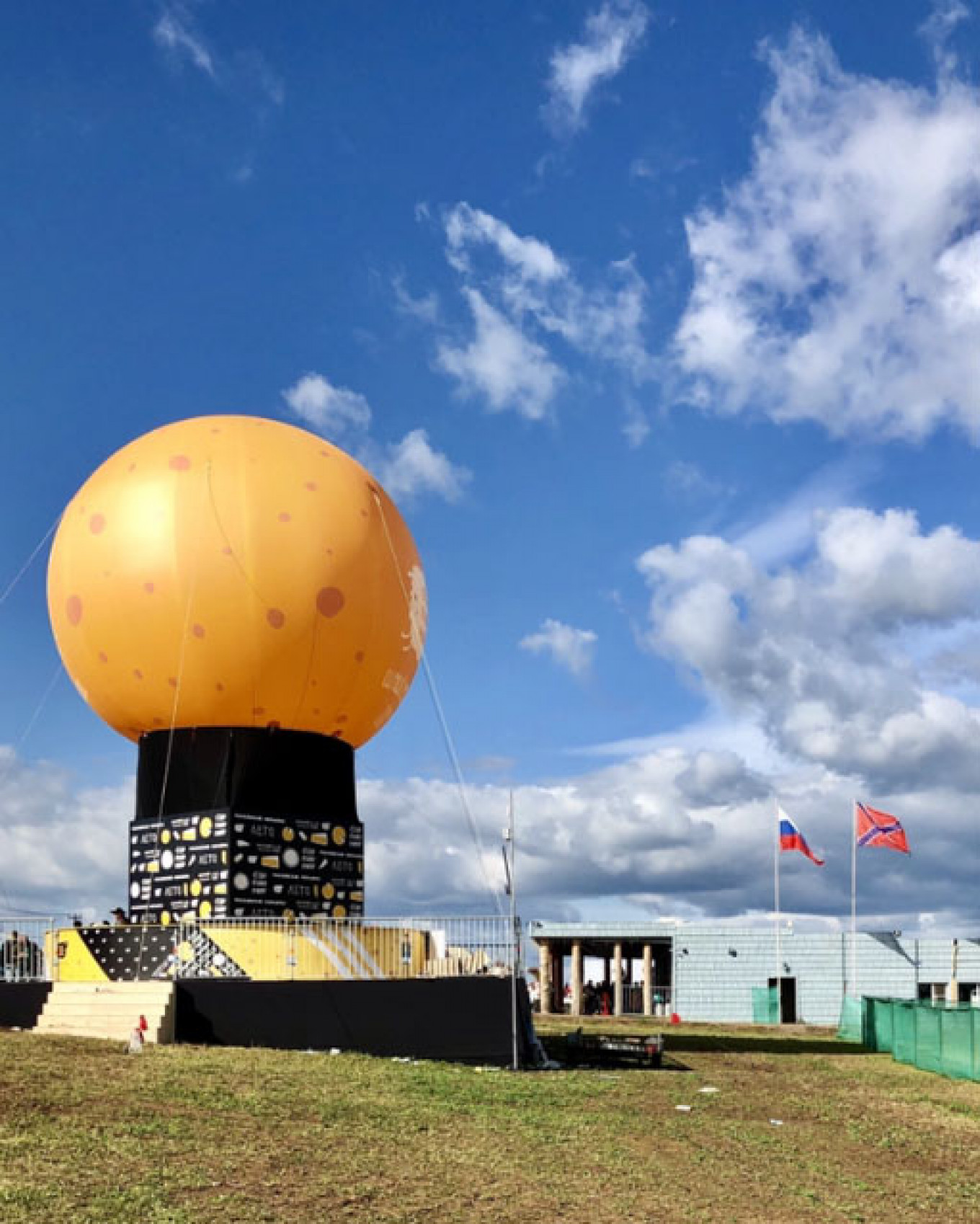
Those weren’t the only problems facing the cheese industry. Videos from 2015 show tons of European cheese being squashed by bulldozers in the city of Belgorod near the Russian border with Ukraine. In that same year, Roscontrol — a non-profit organization that monitors food standards — published a report saying that 36 out of 46 brands of Russian cheese and butter it had tested overused additives, lied about ingredients or violated sanitary norms. It seemed that the Russian cheese market was headed for catastrophe.
Sirota was undeterred.
“That bulldozer at the border is my ally,” he said in a National Geographic short film titled "War and Cheese." “If Obama, Merkel and Cameron said that the sanctions would be here for 15 more years, then next week I’d build a full-scale bronze statue of each of them, with cheese wheels in their hands.”
What’s more, the initial problems Sirota had faced disappeared. In a stroke of luck, Sirota connected with Sergei Nedorezov, a Russian cheesemaker who had studied and worked in Germany for twenty years, on a public group on the Vkontake social network. Nedorezov had long dreamed of returning home and decided to move to Dubrovskoye to mentor and work with Sirota. Then the government launched a program to subsidize small farmers, which cut Sirota’s interest rates to 3-5% per year.
Now, four years after Sirota sacrificed everything to pursue his dream, Russian Parmesan sells 11 types of cheese in over thirty stores in the Moscow region. And Sirota isn’t the only cheese factory to have benefited from the embargo. This year, 170 cheesemakers and 300 farmers from 44 Russian regions took part in Sirota’s “Cheese, Feast, Peace” festival at his farm. There were just 12 cheesemakers at the first festival in 2016.

The first thing that catches your eye when you pull into the Russian Parmesan parking lot is three gigantic yellow letters spelling out Syr, the Russian word for cheese. Beyond the sign, the red and blue flag used by separatists in eastern Ukraine flutters in the wind alongside the Russian flag.
Over 50,000 people attended the festival on Aug. 10, despite torrential rain, according to Dubrovskoye’s local paper, Istrian News.
Judges from Russia, France, Italy, and Switzerland sampled cheeses produced by the ten finalists in this year’s “Russia’s Best Cheese” competition. The winner was a soft goat cheese made by Andreyev, Kandyrin and Cheese, a small producer in the Moscow region. According to the judges, the cheese — crafted in the French tradition — stood out for its “tenderness, delicacy and complex flavors.”
Although co-owner Aleksei Andreyev also began producing cheese in 2015, he doesn’t share Sirota’s enthusiasm for sanctions.
“I don’t like to get involved in politics,” Andreyev told The Moscow Times. “I don’t feel any which way about sanctions. Well, in general, sanctions — both Western and Russian — are bad. But they did give us a push to start developing many different domestic industries.”
Andreyev never harbored dreams of becoming of cheese maker. He started making cheese, he said, thanks to his daughter, who worked for Bongren, a French company that used to import cheese into Russia.
“For her birthday, we got her a kit for making camembert,” Andreyev said. This was in 2013. They got some milk from a local farm, found a recipe online, and were all pleasantly surprised by the results.
Then, in 2014, after the imposition of sanctions, Bongren faced problems, and Andreyev’s daughter quit her job.
“We started making more cheese in the summer of 2015,” Andreyev said. “Our friends liked it and said we should make more. So we started making cheese in our apartment in Moscow.”
French know-how
Andreyev said his operation is successful due to his knowledge of French.
“I started going to France, talking to French cheese makers, figuring out which cultures to use, which ingredients,” he said. He added that what separates good cheese from bad cheese is the quality of the cultures and milk, and his creamery only uses the highest quality ingredients.
But there are still obstacles facing Andreyev’s business.
“The biggest problem is with sales,” he said. “We make high quality, premium cheese but there’s nowhere to sell it...People don’t understand cheese here, we just don’t have a history of it.”
Alexander Krupetskov, founder of the Cheese Sommelier chain of stores selling artisanal cheeses around Moscow, agrees with Andreyev.
“Russia isn’t a cheese country,” Krupetskov told The Moscow Times. “It never has been. We have a tradition of eating sandwiches with bread, butter, and a slice of cheese. And it doesn’t matter what kind of cheese goes on top.”
Krupetskov is trying to solve this problem by holding in-store cheese tastings and organizing classes where people can learn to pair cheese with different wines and fruits.
Production chain
There are still other problems facing the cheese industry.
“The problem is the whole chain needs to work,” Andreyev said. “From the top to the bottom, maker to buyer. The government gives us money to start a farm, but I don’t want to run a farm. I want to buy good milk and make cheese. We need to develop cheese culture in Russia. We need to have farmers’ markets every Saturday, like in Europe.”
But Andreyev believes that more artisanal shops will open soon. And Krupetskov hopes to raise his number of stores from six to twenty in the coming years.
Despite these challenges, Andreyev feels confident that the Russian cheese market doesn’t need to be afraid of competing with European cheesemakers anymore.
He said that European cheesemakers want to see Russian cheese on the market, adding that the country’s cheesemakers don’t produce enough yet to satisfy demand.
Even Sirota, who approves of sanctions, admits that the situation is changing. Since the opening of Russian Parmesan in 2015, the industry has grown thanks to Russian and foreign investment, and he believes it will soon be able to compete with Europe without sanctions.
“If the embargo is lifted, I don’t know who should fear whom,” Andreyev said. “I think it’s Europe who will have to compete with us, not us with them.”
A Message from The Moscow Times:
Dear readers,
We are facing unprecedented challenges. Russia's Prosecutor General's Office has designated The Moscow Times as an "undesirable" organization, criminalizing our work and putting our staff at risk of prosecution. This follows our earlier unjust labeling as a "foreign agent."
These actions are direct attempts to silence independent journalism in Russia. The authorities claim our work "discredits the decisions of the Russian leadership." We see things differently: we strive to provide accurate, unbiased reporting on Russia.
We, the journalists of The Moscow Times, refuse to be silenced. But to continue our work, we need your help.
Your support, no matter how small, makes a world of difference. If you can, please support us monthly starting from just $2. It's quick to set up, and every contribution makes a significant impact.
By supporting The Moscow Times, you're defending open, independent journalism in the face of repression. Thank you for standing with us.
Remind me later.


